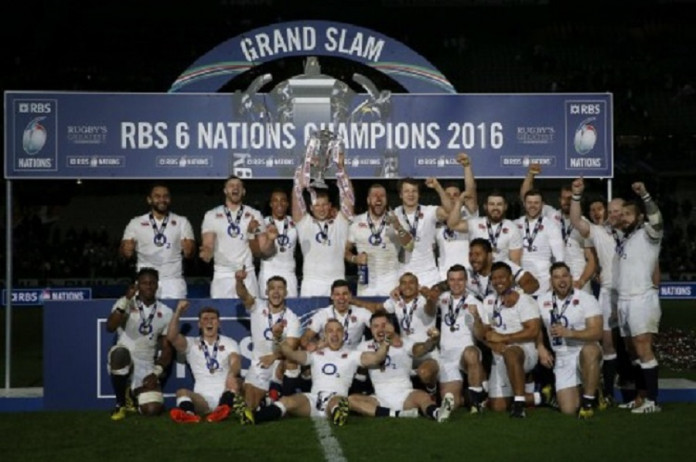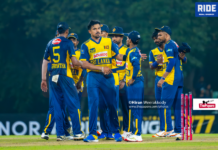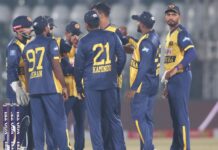2017 is upon us, and is a year of great rugby significance. It marks the midway point between the World Cup cycle, where each nation begins to strengthen their preparations for the showpiece event. This is reflective in some of the decisions being made, and direction taken, on and off the field. However, for all those born or bred in the ‘home nations’ of England, Scotland, Wales, and Ireland, 2017 is ‘Lions’ year. And could there be a more challenging prospect of taking on New Zealand in their own back yard?
(lions flag)
I will dwell more on the uniqueness of Lions tours in a later article as and when we draw closer to the event. We will look into greater detail of what will prove to be the ultimate trial for selection on this esteemed tour – the ‘Six Nations’ which commences in just over a fortnights time. However, prior to commenting on the prospects of each of the teams, we must first take a look back at how 2016 went.
The year that follows a World Cup is generally subdued, as players and the public alike are still recovering from the hangover of what transpired at the said tournament. There is also likely to be a fallout to some extent – in the form of long standing servants of the game hanging up their boots, or those who fall prey to the wielding axe following a poor result. All eyes were on World Champions New Zealand, following the exit of some true greats, none greater than Richie McCaw, and Dan Carter.
Conrad Smith, Ma’a Nonu, and Mealamu bid adieu and 2016 saw the changing of the guard. Surely opposing teams felt they were ripe for the picking, but against all odds, the All Blacks went on to break the record of consecutive test victories (18). They finally met their match in the form of a less fancied, but incredibly passionate Ireland side in Chicago during the end of season tour. That being the only blip, the All Blacks will take great pride in their efforts. Surely they will look to build on where they left off as they welcome the Lions in June.
As for Trans-Tasman neighbors Australia, the results sheets make poor reading. Only six wins in fifteen games. Losing to England in all four games played, three of them on home soil, arguably the most bitter of many pills to swallow for Michael Cheika.
Voted ‘Coach of the Year’ in 2015, the jury is out on what progress the outspoken Aussie has made in recent times. However, you look at the Springboks and the picture is much much bleaker. They pretty much lost against everybody, including perennial non-starters Italy. Allister Coetzee is now a man under immense pressure.
It’s hard to imagine that Coetzee is still in the job considering what a proud rugby nation South Africa is. I can understand the Boks losing matches owing to superlative performances of their opponents, or the rub of the green not going their way. But, by and large, the quality of what they’ve dished out on the pitch has been atrocious.
They initially tried to play too expansive, like their Super Rugby ‘Lions’ team did. And they failed. They picked the same players and then realized, the considerable step up from Super Rugby to International standard.
Most of the players picked couldn’t live with the intensity. Then they went into their shell playing defensive, negative, kick-deep kind of stuff. Whilst being hard on the eye, it simply gave them no attacking platform at all. It’ll be interesting to see how they shape up this year. More of the same, and some heads will certainly roll.
With the ‘Six Nations’ around the corner let us now focus on the northern hemisphere nations.
England have made a meteoric rise following their shambolic World Cup campaign. They closed 2016 unbeaten in 13 games, which included (as said before), four wins against Australia, all their European rivals, and South Africa for good measure. Unfortunately, there was no meeting this Autumn with the All Blacks.
The English will possibly rue the fact they didn’t play New Zealand at the end of the year, because the World Champions looked visibly fatigued on their travels. A great opportunity to upstage them was not to be. Much of the credit has to go to Eddie Jones, who I rate as the best tactical coach in world rugby today. What has impressed me most about Jones is that he has evolved as a coach, constantly looking at ways of improving his methods, and not shy of learning from other disciplines. Jones has taken England to a whole new level.
While reinstating their superiority in set pieces, which is what they have traditionally been renown for, he has brought in a ruthless attacking dimension to their backline, orchestrated by the George Ford / Owen Farrell 10-12 axis.
England also have great depth in their squad, which has seen them up the ante to kill off teams in the last quarter. In the lead up to the Six Nations, England have two worries. The first is the long list of injury casualties. They will be sans the rejuvenated, and reinvented Chris Robshaw, and the barnstorming Billy Vunipola. Brother Mako is a doubt, as is the case with Joe Marler, and James Haskell. England still has a lot of resources to call on, but players such as Billy Vunipola and Robshaw will be a huge loss.
The other predicament facing Jones, is the indiscipline of Captain Dylan Hartley. Suspended again for a ‘Red Card’ following a cheap shot, Hartley is now woefully short of match practice. Furthermore, in my estimation, the Northampton man is not the best Hooker in England. Probably not even in the top three. So do you select him over a consistently impressive Jamie George to begin with? With experienced players such a Robshaw already sidelined, I feel that Eddie Jones has little choice but to persist with Hartley. Unless of course he pulls a rabbit out of the hat and appoints someone like Maro Itoje with a view to 2019.
After their All Black slaying heroics in Chicago, Ireland have shown that they can compete with anybody. They have a great mix of experience and youth, and Joe Schmidt’s southern hemisphere influence is really showing through. They have the physicality and power game to ruffle any team’s feathers, as the All Blacks found out. The likes of CJ Stander is pure class – breaks the tackle with ball in hand, and an absolute nuisance at the breakdown. Johnny Sexton has gone to a different dimension. They have Robbie Henshaw who’s big and strong at 12, and the youth and guile of Garry Ringrose creating space outside him. Connor Murray is now a general in open play, and you could see that his experience is beginning to tell. They will potentially be England’s biggest test in the Six Nations.
Unfortunately, Wales seem to be suffering again during Warren Gatland’s sabbatical, owing to his ‘Lions’ commitment. The same happened in 2013. Rob Howley is in charge, but they seemed to be well off the pace in November. Like Scotland, they have somewhat of a limited player base. And add to that players of true international quality are hard coming. George North is now stigmatized with concussion issues, with injury concerns also over Dan Lydiate, and Sam Warburton. Jamie Roberts has also struggled in recent times, and the team seems to be lacking creativity and penetration in their game. Most of the Welsh players will be harboring hopes of making the Lions tour and will be out to impress their national boss.
Scotland have been the unluckiest of teams. They should have beaten Australia in the World Cup quarters, and they certainly should have beaten them at Murrayfield in the Autumn. On both occasions, they have only themselves to blame. Though results may not clearly suggest, Vern Cotter has vastly improved this Scottish outfit. They play with flair and hold their own in tight moments. It’s a shame that Cotter will be moving on after the Six Nations, though I’m sure he will be looking to leave on a high. The man taking his seat is not a stranger to European rugby. Gregor Townsend is a household name in rugby, and continues to do wonders with the Glasgow Warriors. You sense that the success the Warriors have enjoyed in recent times is beginning to rub off on the national team. They will be the dark horses in the tournament.
France rugby had been in steep decline since being runners-up at the 2011 World Cup. However, former Toulouse Coach Guy Noves has come in, and injected some of that long lost French flair back into their game. They played well against both, Australia and New Zealand, despite coming up short. They have some good young talent coming through the Top 14, which is now revered as arguably the best domestic league in Europe. It’s certainly the richest. The French are still some distance behind England and Ireland at the moment, but now have some serious firepower out wide. They play England on the opening weekend at Twickenham. If they can find it in them to cause an upset, over what is likely to a slightly depleted host, they could well rack up a Grand Slam.
So, sit tight folks. There promises to be some outstanding rugby just around the corner.














